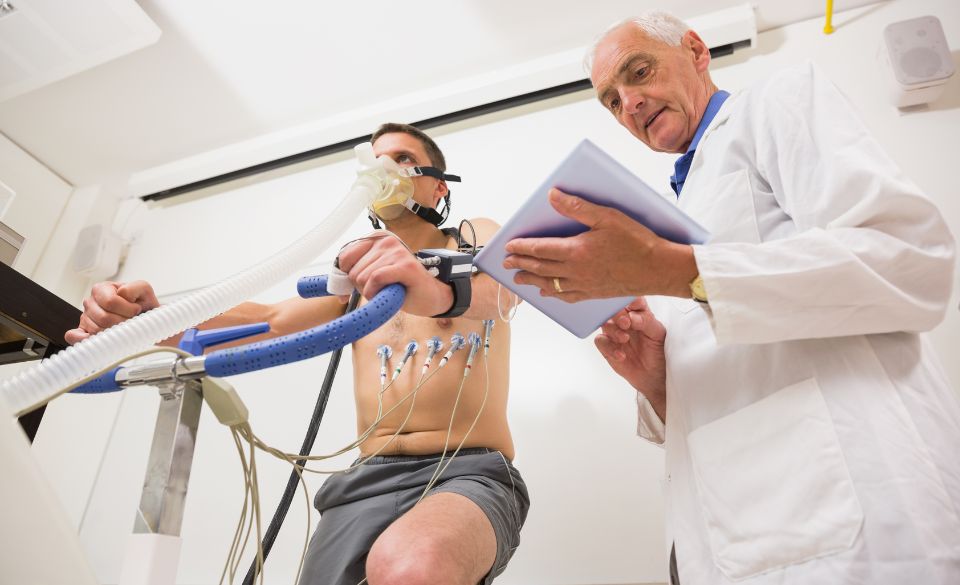
Assessing Your Fitness Level: Understanding Its Importance
Page Contents
Maintaining a healthy lifestyle is a top priority for many individuals. From eating nutritious food to engaging in physical activity, everyone wants to keep their body in top shape. However, with so many fitness options available, it can be challenging to know where to start. Assessing your fitness level can be a helpful tool to create a personalized fitness plan that meets your individual needs. Here, we will discuss why it is important to assess your fitness level and how you can do so.
Understanding Fitness Assessment
Fitness assessment is the process of evaluating your current physical condition to determine your level of fitness. This process typically involves a series of tests that measure various aspects of your fitness, including strength, endurance, flexibility, and body composition. Fitness assessments can be performed by healthcare professionals, fitness experts, or even online tools that provide self-assessment options.
Importance of Fitness Assessment
Identifies Your Current Fitness Level
Assessing your fitness level helps you determine where you currently stand in terms of your physical health. This understanding provides a baseline for setting fitness goals and creating an effective workout routine. By knowing your fitness level, you can tailor your workout plan to your specific needs, ensuring that you are not overexerting yourself or failing to challenge yourself enough.
Helps Track Progress
Regular fitness assessments can help you track your progress over time. By comparing your initial results to later assessments, you can see how much you have improved and identify areas that still need improvement. Tracking progress can be a great motivator and provide a sense of accomplishment, keeping you engaged in your fitness routine.
Identifies Potential Health Risks
Fitness assessments can also identify potential health risks. For example, if you have high blood pressure, your healthcare professional may recommend a low-impact workout routine to avoid any unnecessary strain. Identifying potential health risks early can help you take proactive measures to improve your overall health.
What Types of Fitness Assessments Are There?
There are various types of fitness assessments that can be used to evaluate your physical health and fitness level. Here are some of the most common types of fitness assessments:
Body Composition Assessment
Body composition assessment measures your body fat percentage, muscle mass, and bone density. It helps determine if you are carrying excess body fat, which can increase your risk of developing health problems like heart disease, diabetes, and stroke. The most common methods for measuring body composition include skinfold calipers, bioelectrical impedance, and dual-energy x-ray absorptiometry (DEXA) scans.
Cardiovascular Fitness Assessment
Cardiovascular fitness assessment measures your heart and lung’s ability to deliver oxygen to your muscles during exercise. This type of assessment typically involves a cardiorespiratory fitness test, which is a graded exercise test that measures your heart rate, blood pressure, and oxygen consumption during exercise. The most common cardiorespiratory fitness tests include the VO2 max test, the Bruce protocol, and the 12-minute run/walk test.
Muscular Strength and Endurance Assessment
Muscular strength and endurance assessment measures your muscle strength and endurance. It can be done through a variety of tests, such as the one-repetition maximum (1RM) test, which measures your maximum weightlifting capacity for a single repetition, or the push-up and sit-up test, which measure your upper and lower body muscular endurance.
Flexibility Assessment
Flexibility assessment measures the range of motion of your joints and muscles. Poor flexibility can lead to muscle imbalances and increase your risk of injury. The most common methods for measuring flexibility include the sit-and-reach test and the shoulder flexibility test.
Posture and Movement Assessment
Posture and movement assessment evaluates your overall movement patterns and posture. Poor posture can lead to muscle imbalances and chronic pain. This type of assessment can be done through functional movement screening or gait analysis.
Nutrition Assessment
Nutrition assessment evaluates your diet and nutrient intake. It can help determine if you are getting enough essential nutrients, such as protein, vitamins, and minerals. The most common methods for measuring nutrition include food diaries, food frequency questionnaires, and nutritional analysis.
Studies on Fitness Assessment
Studies have shown that fitness assessments can be an effective tool in helping individuals improve their overall health. In a study published in the American Journal of Preventative Medicine, researchers found that individuals who participated in fitness assessments had a higher likelihood of engaging in regular physical activity. Another study published in the Journal of Physical Therapy Science found that fitness assessments can help identify muscle imbalances and prevent injuries in athletes.
Conclusion – Why Is It Important To Assess Your Fitness Level
Assessing your fitness level is a crucial step in creating a personalized fitness plan that meets your individual needs. By identifying your current fitness level, tracking progress, and identifying potential health risks, you can improve your overall health and achieve your fitness goals. Whether you opt for a professional assessment or use an online self-assessment tool, taking the time to assess your fitness level is a step towards a healthier lifestyle.


